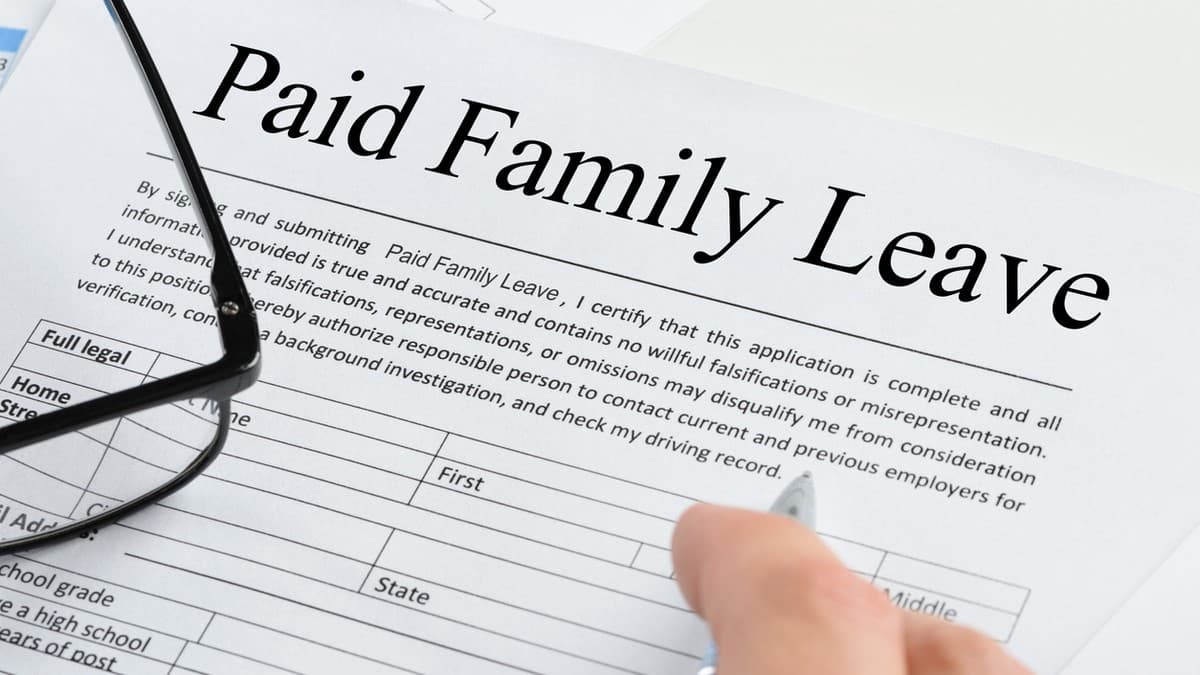Can a Therapist Fill Out Your FMLA Forms? 5 Tips

When you're considering taking leave under the Family and Medical Leave Act (FMLA), one common question that arises is whether your therapist can fill out your FMLA forms. This article delves into the nuances of this question, offering insight, guidance, and tips on how to effectively navigate the process of involving a therapist in your FMLA application.
Understanding FMLA

Before diving into specifics, let’s understand the basics of FMLA:
- FMLA allows eligible employees to take up to 12 weeks of unpaid, job-protected leave in a 12-month period for certain family and medical reasons.
- The Act covers employees for their own serious health conditions, to care for a spouse, child, or parent with a serious health condition, or for certain military-related events.
FMLA applications often require medical certification, which is where therapists might come into the picture.
The Role of a Therapist in FMLA

Therapists, including psychologists, licensed clinical social workers, and other mental health professionals, can play a crucial role in the FMLA process:
- Certification of Serious Health Conditions: A therapist can certify your serious health condition if it’s within their scope of practice. This can include conditions like anxiety, depression, or PTSD, which significantly affect your ability to work.
- Verification of Need for Leave: They can provide documentation to verify that you need time off to address or manage a mental health issue.
Steps to Involve Your Therapist in FMLA

Here are the steps to consider when involving your therapist in your FMLA application:
- Discuss Your Intentions: Beforehand, discuss your need for FMLA with your therapist. Ensure they understand what FMLA entails and what documentation is required.
- Provide Forms: Supply your therapist with the relevant FMLA forms (WH-380-E for employee’s serious health condition, WH-380-F for family member’s serious health condition). You can often obtain these from your employer’s HR department or download them from the Department of Labor’s website.
- Authorize Release of Information: You must sign a release form allowing your therapist to discuss your condition with HR or share necessary medical information.
- Complete Certification: Your therapist will complete the forms, indicating your need for leave and how your condition impacts your ability to work.
- Submit Documentation: Ensure your therapist returns the completed forms to HR or your employer promptly.
⚠️ Note: If your therapist has any reservations about filling out the forms or feels the condition does not warrant FMLA, they might suggest alternative solutions or discuss different leave options.
5 Tips for Working with Your Therapist on FMLA Forms

Here are five practical tips to ensure a smooth process:
1. Communicate Clearly and Often

Keep your therapist informed about your employment status, the severity of your condition, and any changes. Clear communication helps them provide accurate documentation.
2. Understand Their Scope

Not all therapists feel comfortable or qualified to certify FMLA requests. Understand the limits of their practice and expertise. If your therapist is unsure, they might refer you to a psychiatrist or another medical professional.
3. Be Proactive

- Provide all necessary forms, your therapist’s contact information, and any deadlines well in advance.
- Be prepared to answer questions about your job and how your condition affects your work performance.
4. Know Your Rights

Familiarize yourself with your rights under FMLA. Remember that while your employer can request certification, they cannot dictate who provides it within reason. This can be important if there’s contention over the appropriateness of your therapist’s certification.
5. Plan for Follow-up

Your therapist might need to recertify or update your condition periodically. Plan for these interactions to ensure continuity of your leave if necessary.
✅ Note: Sometimes, your employer might request additional information or clarification. In such cases, facilitate communication between your therapist and HR to resolve any issues.
Summary

The process of involving your therapist in your FMLA application can be straightforward if both parties are clear about the requirements and expectations. The key is to communicate effectively, understand the scope of your therapist’s practice, and ensure that all documentation is completed and submitted accurately. Remember, while your therapist can support your FMLA application, their professional opinion is subject to their expertise and the specifics of your health condition.
Can any therapist certify my FMLA leave?

+
No, not every therapist can certify FMLA. The therapist must be a recognized healthcare provider with the appropriate scope of practice and license to certify your serious health condition.
What if my therapist is uncomfortable certifying my FMLA?

+
If your therapist feels uncomfortable or unqualified to certify your FMLA request, they might refer you to a psychiatrist or another mental health professional better suited to certify such requests.
Can my employer question my therapist’s certification?

+
Yes, under FMLA regulations, your employer can contact your healthcare provider for clarification. They cannot request unrelated information or insist on specific certifications.
What if my FMLA certification is denied?

+
If your FMLA certification is denied, you can appeal the decision through HR, provide additional documentation, or seek legal advice to understand your rights and options.
Do I need to inform my employer if my condition changes?

+
Yes, if your condition improves or changes in a way that affects your ability to work, you should update your employer to ensure compliance with FMLA regulations.